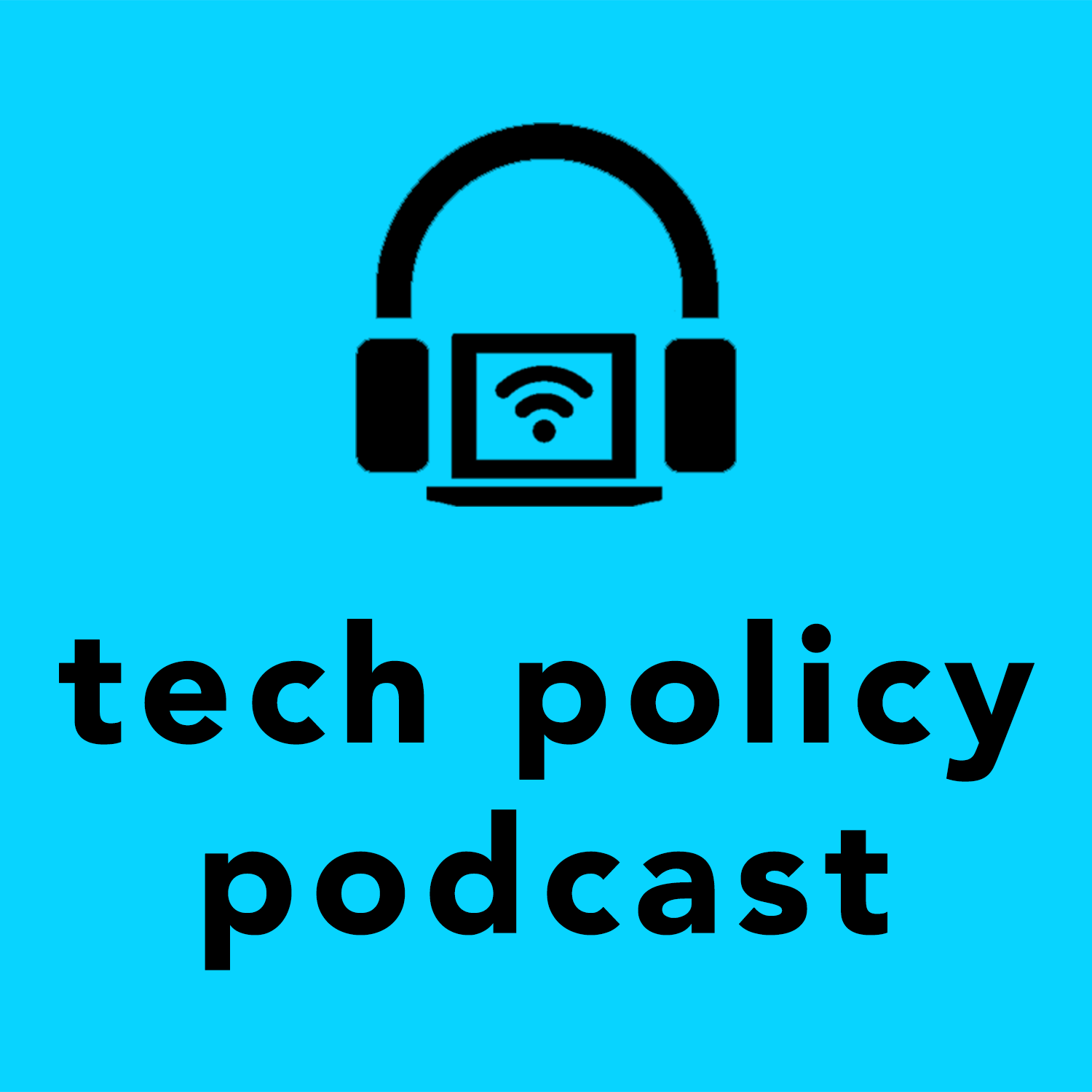Episodes

Thursday Jun 24, 2021
#294: Border Searches of Digital Devices
Thursday Jun 24, 2021
Thursday Jun 24, 2021
Border agents have broad authority to search the smartphone or laptop of anyone entering the country. That might be about to change, however, if the Supreme Court takes up one of several cases challenging such searches. Professor Orin Kerr, of the University of California, Berkeley, School of Law, joins the show to discuss the interplay between the Fourth Amendment and the border, the Court’s evolving views on smart-device searches, and what might happen if any or all of these cases is taken up.
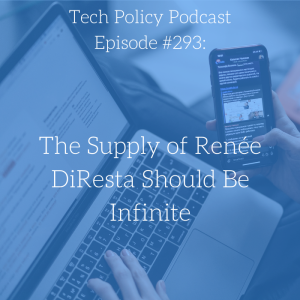
Thursday Jun 03, 2021
#293: The Supply of Renée DiResta Should Be Infinite
Thursday Jun 03, 2021
Thursday Jun 03, 2021
Named in honor of her wonderful essay in The Atlantic, “The Supply of Disinformation Will Soon Be Infinite,” this episode is a wide-ranging discussion with Renée DiResta, the technical research manager of Stanford Internet Observatory. Corbin and Berin pick Renée’s brain about the latest trends in misinformation, social media’s role in the “Stop the Steal” movement, the rise of online influencers, how to increase information literacy, and more.
Other pieces of Renée’s mentioned or discussed in the show include “Mediating Consent,” “How to Stop Misinformation Before It Gets Shared,” “The Misinformation Campaign Was Distinctly One-Sided,” and “The Anti-Vaccine Influencers Who Are Merely Asking Questions.”

Tuesday May 25, 2021
#292: Is Miami the Next Great Tech Hub?
Tuesday May 25, 2021
Tuesday May 25, 2021
Thanks in part to outreach by its mayor, Francis Suarez, Miami is becoming a tech hotspot. Matt Haggman, an executive at the Miami-Dade Beacon Council, joins the show to discuss what’s drawing tech entrepreneurs to Miami, as well as what social, political, and environmental challenges could stand in the way of Miami becoming a new Silicon Valley.
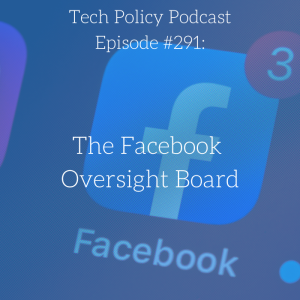
Monday May 10, 2021
#291: The Facebook Oversight Board
Monday May 10, 2021
Monday May 10, 2021
Last week, Facebook’s new Oversight Board issued a much-discussed ruling on the platform’s suspension of Donald Trump. Two of the Board’s members, Ronaldo Lemos and John Samples, join Corbin and Berin for a wide-ranging discussion on the Trump decision, the Board, and content moderation.
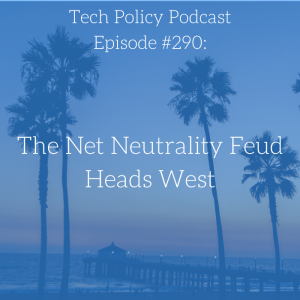
Wednesday Apr 21, 2021
#290: The Net Neutrality Feud Heads West
Wednesday Apr 21, 2021
Wednesday Apr 21, 2021
“America is built on a tilt,” runs the apocryphal Mark Twain quote, “and everything loose slides to California.” So it might be said of net neutrality. The court fight over California’s new net neutrality law is only the latest episode in a long-running battle. TechFreedom’s James Dunstan and Corbin Barthold discuss what got us here (net neutrality ping pong at the FCC), where we are (a state trying to regulate an inherently interstate network), and where we need to go (a federal law that finally puts the debate to rest).
For more, see TechFreedom’s amicus brief in the California net neutrality case. (And if you’re wondering where Corbin got the concept of “kludgeocracy,” check out political scientist Steven Teles’s 2013 article, Kludgeocracy in America.)
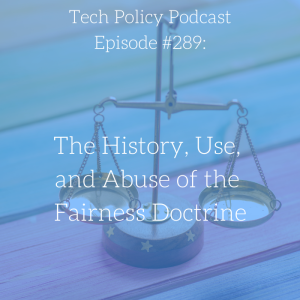
Wednesday Apr 14, 2021
#289: The History, Use, and Abuse of the Fairness Doctrine
Wednesday Apr 14, 2021
Wednesday Apr 14, 2021
Few public policies are more misunderstood than the Fairness Doctrine that briefly governed American broadcast media. If you think we need a “new Fairness Doctrine” for the Internet, chances are you’re not clear on what the old version was. Paul Matzko, editor for technology and innovation at Libertarianism.org, joins the show to discuss the history of the Fairness Doctrine, why it failed, and why making a new one would be a terrible idea. For more, see Paul’s book, The Radio Right: How a Band of Broadcasters Took on the Federal Government and Built the Modern Conservative Movement.
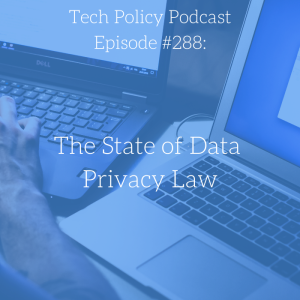
Tuesday Apr 06, 2021
#288: The State of Data Privacy Law
Tuesday Apr 06, 2021
Tuesday Apr 06, 2021
Data privacy is a complex and dynamic policy field. Lydia de la Torre, an inaugural board member of the new California Privacy Protection Agency, and Alan Friel, a partner at Squire Patton Boggs, join the show to help make some sense of it. They discuss the history of privacy policy, the growing influence of European privacy principles, and the new privacy laws we are seeing, or can expect, at the state and federal levels here in the United States.
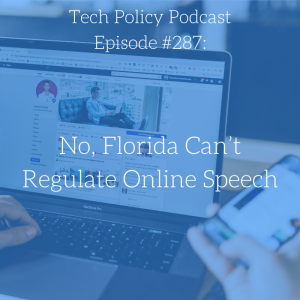
Tuesday Mar 23, 2021
#287: No, Florida Can’t Regulate Online Speech
Tuesday Mar 23, 2021
Tuesday Mar 23, 2021
Florida is poised to enact a law limiting social media websites’ ability to ban or moderate users. TechFreedom's Berin Szóka and Corbin Barthold discuss whether the bill is constitutional, and whether it would really protect speech (spoiler alert: no and no). For more, see their essay on the bill in Lawfare, a TechFreedom paper on Section 230 and the First Amendment, and a previous podcast episode on efforts to apply the Fairness Doctrine to the Internet.
If you’ve already heard us explain why the First Amendment protects content moderation and just want to hear why the Florida law’s special protections for political candidates are also unconstitutional, skip forward to 23:55. And here’s the 1979 Supreme Court decision in Midwest Video II explaining how, in 1934, Congress rejected proposals to require broadcasters to “turn over their microphones to persons wishing to speak.”

Monday Mar 08, 2021
#286: How Algorithms Can Fight Extremism
Monday Mar 08, 2021
Monday Mar 08, 2021
What can social-media platforms do to address growing concerns about extremism on their sites? Research suggests that YouTube, for one, has made great strides in driving viewers of radical messages toward more mainstream content. As new forms of misinformation arise, YouTube has succeeded in quickly adjusting its algorithmic recommendations. Dr. Anna Zaitsev is a postdoctoral scholar at the UC Berkeley School of Information, and the co-author of the paper “Algorithmic extremism: Examining YouTube’s rabbit hole of radicalization.” She joins the show to discuss her research on YouTube’s recommendation system, and what it takes to spot, block, and demote ever-evolving extremist content.
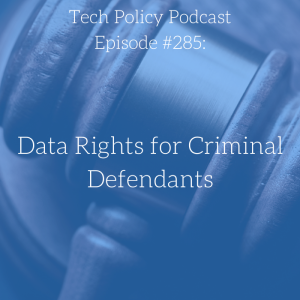
Tuesday Feb 23, 2021
#285: Data Rights for Criminal Defendants
Tuesday Feb 23, 2021
Tuesday Feb 23, 2021
Data plays an increasingly important role in our criminal justice system, yet there are serious inequalities in prosecutors’ and defendants’ rights of access to it. Rebecca Wexler, assistant professor of law at the University of California, Berkeley, School of Law and faculty co-director of the Berkeley Center for Law & Technology, joins the show to discuss the growing role that data plays in criminal investigations and trials; the asymmetries in access to data, code, and more; and how we might reform the criminal justice system’s approach to science and technology.

